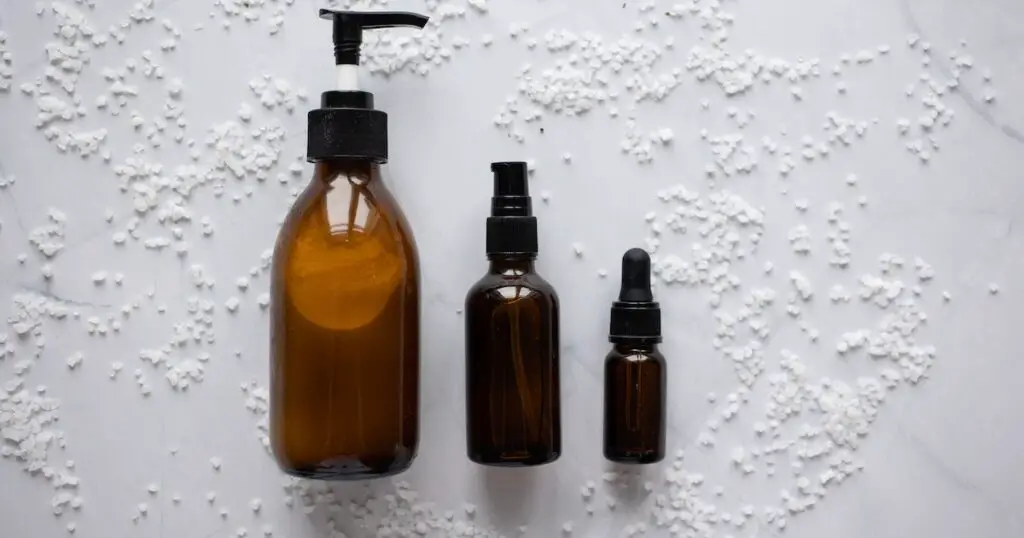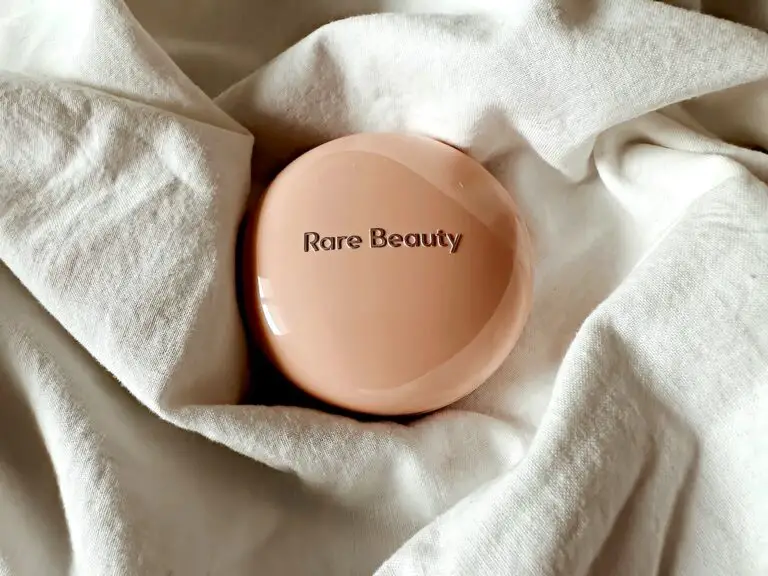How to Use Almond Oil for Skin Whitening: An Ultimate Guide
Medically Reviewed by;
Dr. Kashif
General Physician
Senior Medical Writer
Are you tired of spending a fortune on skincare products that promise to give you flawless, glowing skin but fail to deliver? Look no further than the humble almond oil, a natural ingredient used for centuries for its excellent benefits on the skin. Almond oil is packed with essential vitamins and minerals that nourish and rejuvenate skin whitening, leaving it to look healthy and radiant. In this article, we will unlock the secret to using almond oil for skin whitening and show you how to incorporate it into your daily skincare routine.
From cleansing to moisturizing, we’ll cover how to use almond oil for skin whitening to achieve the glowing complexion you’ve always dreamed of.
Table of Contents
Benefits of using Almond Oil on the Face
Almond oil is a natural ingredient used for centuries for its amazing benefits on the skin. It contains essential vitamins and minerals that rejuvenate your skin whitening. Almond oil contains abundant vitamin E, a powerful antioxidant; which shields the skin from damage induced by free radicals. It also contains vitamin A, which diminishes the visibility of fine lines and wrinkles.
Along with its antioxidant properties, almond oil is also a great moisturizer. Skin easily absorbs it, leaving a soft and smooth feeling. Furthermore, almond oil has nourishing fatty acids that moisturize and hydrate the skin, resulting in a youthful and supple appearance.
Almond oil is also a great natural remedy for dark circles and puffiness around the eyes, which contribute to skin whitening. The anti-inflammatory properties of almond oil aid in diminishing swelling and redness on the skin, while its moisturizing properties help to hydrate the delicate skin under the eyes.
The Science behind Almond Oil and Skin Whitening
Almond oil is abundant in vital fatty acids like oleic, linoleic, and palmitic acids. These fatty acids help nourish and hydrate the skin, leaving it soft and supple. Additionally, almond oil is a source of vitamin E, a potent antioxidant that protects the skin from oxidative damage.
Enhancing the skin’s barrier function is among the primary advantages of almond oil. The skin’s barrier function retains moisture and removes harmful pollutants and bacteria. By strengthening the skin’s barrier function, almond oil aids in preventing moisture loss and shielding the skin against environmental stressors.
With its inherent anti-inflammatory properties, almond oil reduces inflammation and redness in the skin. This natural attribute makes it an excellent remedy for soothing irritated skin, particularly for those with acne-prone skin. These are the prime reasons why almond oil is being used for skin whitening.

How to Use Almond Oil on the Face for Skin Whitening (A Step-by-Step Guide)
Almond oil proves to be a versatile ingredient that can be seamlessly added to your everyday skincare routine through various methods. Here’s a step-by-step guide on how to use almond oil for skin whitening:
Cleansing: Almond oil can be used as a natural cleanser to remove dirt, makeup, and impurities from the skin. To reap its benefits, gently massage a few drops of almond oil onto your face and neck using circular motions, then rinse with warm water.
Toning: Almond oil can also be used as a natural toner to help balance the skin’s ph. After cleansing your face, create a mixture by combining a few drops of almond oil with water, then apply it to your face using a cotton pad.
Moisturizing: Almond oil is a great natural moisturizer that can be used alone or mixed with your favorite moisturizer. Dispense a few drops of almond oil onto your face and neck, then gently massage it using circular motions.
Eye Serum: Almond oil is a great natural remedy for dark circles and puffiness around the eyes. Apply a drop of almond oil under each eye and massage it with your ring finger.
Best Practices for using Almond Oil on the Face for Skin Whitening
When using almond oil for skin whitening, it’s important to follow these best practices to ensure that you get the most out of it.
Use organic, cold-pressed almond oil: This ensures you get the purest form of almond oil, free from any chemicals or additives.
Patch test before use: Almond oil is safe for most skin types. But it’s always a good idea to patch test before use to ensure that you don’t have any adverse reactions.
Don’t overdo it: Exercise caution when using almond oil by applying only a few drops at a time. Avoid excessive application, as it can clog pores and contribute to breakouts. This will harm the face instead of skin whitening.
Almond oil is best used at night, allowing it to absorb into the skin while you sleep and give a fresh look to you.

Almond Oil vs. Other Oils for the Face
Almond oil is one of many natural oils that can be used on the face. Here’s how it compares to some of the other popular oils:
Coconut oil: Coconut oil is another popular natural oil that is great for the skin. However, it can be comedogenic (pore-clogging) for some people. So it’s important to do a patch test before use.
Jojoba oil: Jojoba oil is a lightweight oil that the skin readily absorbs. It benefits all skin types, particularly oily and acne-prone skin.
Rosehip oil: a nourishing oil abundant in antioxidants and vitamins, offers remarkable benefits. It effectively diminishes the visibility of fine lines and wrinkles, making it particularly advantageous for your skin.
Almond Oil-Based Skincare Products for Skin whitening
Plenty of skincare products contain almond oil as an ingredient if you don’t want to use almond oil alone. Here are some of our top picks:
Almond oil cleanser: a gentle cleanser that removes dirt and makeup while nourishing the skin with almond oil.
Almond oil moisturizer: a moisturizer with a lightweight texture that hydrates the skin, giving a smooth and supple feel.
Almond oil eye cream: an enriching eye cream that diminishes the appearance of dark circles and reduces puffiness around the eyes.
If you’re looking for a natural way to pamper your skin, try making almond oil face masks and scrubs for skin whitening. Here are some of our favorite DIY recipes for skin whitening using almond oil:
Almond oil and honey face mask: Mix almond oil, and honey in equal proportions, then spread the mixture onto your face. Rinse it off after 10–15 minutes.
Almond oil and sugar scrub: Mix almond oil and sugar to create a gentle scrub that exfoliates and hydrates, giving you glowing skin.
Almond oil and oatmeal face mask: Mix almond oil and ground oatmeal to create a soothing face mask that helps reduce inflammation and redness.
Almond Oil for Specific Skin Concerns
Almond oil offers versatility when it comes to addressing various skin issues. Here’s how it can help with some specific skin concerns:
Acne: Almond oil is a natural anti-inflammatory, making it a great natural remedy for acne-prone skin. Its soothing properties aid in calming irritated skin, while its moisturizing effects provide hydration without causing pore congestion.
Dryness: Almond oil is a great natural moisturizer that helps to hydrate and nourish dry, flaky skin.
Aging: With its abundant antioxidants and vitamins, almond oil is a natural solution for diminishing the visibility of fine lines and wrinkles. Its moisturizing properties also help plump and hydrate the skin, leaving it youthful and radiant.

Precautions and Potential Side Effects
Almond oil is generally safe for most skin types and widely used for skin whitening, but it’s always a good idea to patch test before use to ensure that you don’t have any adverse reactions. If you have a nut allergy, avoiding almond oil on your skin is best.
In rare instances, almond oil may elicit an allergic reaction. If you encounter symptoms such as redness, itching, or swelling following the use of almond oil, stop its use promptly and seek advice from a dermatologist.
Conclusion
Almond oil has been used for centuries for its amazing benefits on the skin, specifically almond oil products for skin whitening. It is packed with essential vitamins and minerals that nourish and rejuvenate skin, leaving it looking healthy and radiant. From cleansing to moisturizing, almond oil can be incorporated into your daily skincare routine in various ways. Whether you have acne-prone skin, dry skin, or aging skin, almond oil can help address multiple skin concerns. So, say goodbye to expensive skincare products and hello to the wonders of almond oil – your skin will thank you for it.
FAQS
Yes, Almond oil can be used every day unless you don’t develop any allergies or skin reactions.
Yes, almond oil has the potential to lighten hyperpigmentation. It contains vitamin E, which can help in reducing the appearance of dark spots and uneven skin tone. Additionally, almond oil’s moisturizing properties can promote healthy skin cell turnover and support the fading of hyperpigmented areas. However, it’s important to note that results may vary depending on individual skin type and the severity of hyperpigmentation. For best results, consistent use of almond oil and consultation with a dermatologist are recommended.
Almond oil is often praised for its potential benefits for the skin, including its ability to promote a healthy glow. While individual results may vary, almond oil can provide several properties that contribute to skin whitening.
No, almond oil is not the same as vitamin E oil. While almond oil contains vitamin E, it is not solely composed of this nutrient. Almond oil is extracted from almonds and contains a variety of beneficial components, including fatty acids, antioxidants, and vitamins, in addition to vitamin E. On the other hand, vitamin E oil is a concentrated form of vitamin, usually derived from synthetic sources or extracted from plant oils.
No, almond oil is not a whitening oil. Almond oil does not possess properties or ingredients that can bleach or lighten the skin. While it may contribute to a healthy complexion and improve the appearance of the skin, it does not have the ability to whiten or change the natural color of the skin.
Disclaimer: This article is for educational purposes only, and does not substitute any medical advice. Always consult a qualified healthcare professional for personalized advice before trying new treatments or medications.

General Physician
Senior Medical Writer






